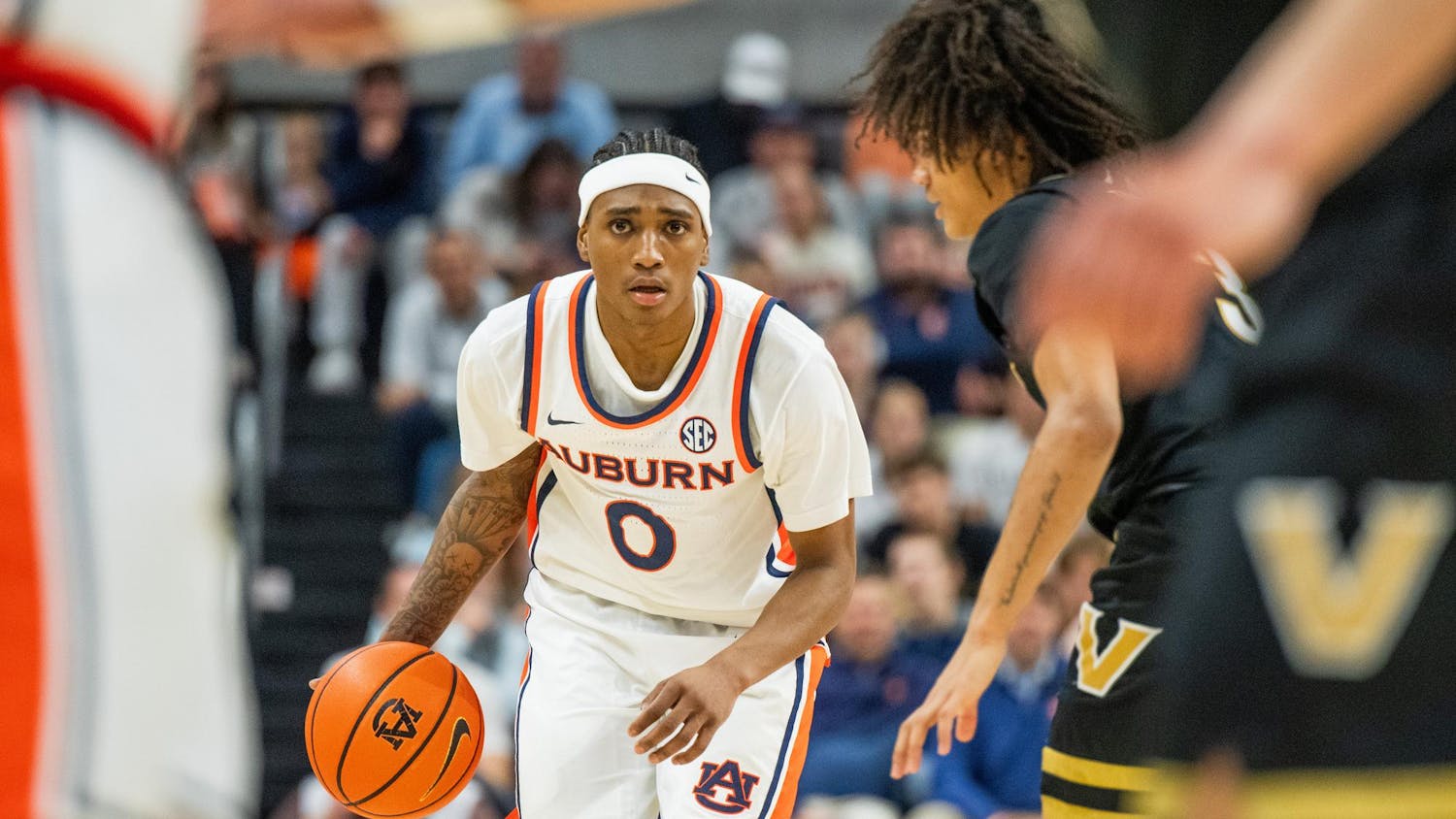A trial five years in the making began Monday between Auburn University economics professor Michael Stern and five former University officials: former President Jay Gogue and Steven Leath, former Provost William Hardgrave and Timothy Boosinger and former Dean of the College of Liberal Arts Joseph Aistrup.
Stern is requesting back pay, punitive damages, injunctive relief, that he be placed back in his previous position as chair of the economics department or that he may receive front pay, according to the case summary.
According to Stern and his lawyers during the opening statement Monday, Stern was faced with three specific acts of retaliation for speaking publicly about the public administration major in the political science department, which he and other colleagues believed was deliberately saturated with student-athletes — particularly football players.
Stern is suing on the basis that the instances in which he spoke about this concern publicly — in three publications including the Wall Street Journal and in a public forum, University Senate, falls under protected speech in the First Amendment and he should not have faced any form of retribution. The burden falls on him and his lawyers to prove that the supposed acts had malicious intent and were performed specifically because of the instances in which he spoke about the "clustering" of student-athletes.
In February 2014, Stern brought this concern up during Senate and an additional three times during future Senate meetings. The first time, the faculty athletics representative at the time objected and maintained there was no deliberate cluster of student-athletes within any major.
Between 2014 and May 2018, his third and final mention of the “clustering” at Senate, the Wall Street Journal published an article in August 2015 titled At Auburn, Athletics and Academics Collide.
The article discussed the clustering in the PUBA major, an academic program review committee’s vote to close the major and Boosinger’s and Aistrup’s override of that vote after opposition from the athletic department, according to the case summary.
In May 2018, Stern prepared a presentation with “evidence” of the cluster of student-athletes within the major. He suggested that his removal as chair, which happened just ten days after the presentation, was one of three acts of retribution. He received an email from Aistrup, stating that his position would expire in August 2019 with no explanation to why.
Another act, they suggested, was performed by former Provost Boosinger, who retired in December 2017. Stern failed to receive an annual evaluation in March of that year, and he believed the absence hindered his chances of receiving raises in the future. Stern attributes this failure to Boosinger, despite the duty of providing him with an evaluation for the year fell onto Associate Provost Emmett Winn.
The last instance, noted by Stern’s lawyer, was the denial of a raise or bonus in fall 2018 against former Dean Aistrup and former provost Hardgrave despite an average increase of raises that year throughout the economics department.
During the defense of Auburn University’s opening statements, they denied that these claims were methods of retaliation against Stern for his concern over the “clustering” of student-athletes.
The University’s legal team alleged that Stern's removal from his position as chair of the department was unrelated to the events highlighted by the plaintiff.
Instead, the defendants argued that Stern’s demotion can be attributed to the fact that he “did not believe the rules applied to him,” and that expanded to his refusal to follow the “chain of command” of administration in which Stern was expected to report to Aistrup.
Of the three acts that the lawsuits defined, the lawyers defending the former officials argued that Stern’s lack of performance evaluation was a result of former president Jay Gogue’s consideration and could not be classified as malicious. For the lack of evaluation to have malicious intent, they argued, he would have had to vocalize his concern about the “clustering” major during the evaluation period the previous year, in 2016, which he did not do.
Additionally, they alleged that under former President Leath, who succeeded Gogue, Stern was unhappy with the circumstances of the economics department as a major within CLA instead of an independent school.
The first witness of the weeklong trial was Alan Seals, associate professor in the economics department. Seals once served as the graduate program officer in the department before his removal shortly after Stern’s own.
Seals alleged that his removal as GPO took place only 30 minutes after Stern’s removal as chair. He also said that he was administering an exam to potential graduate students when he was removed and was unable to accept their exams.
According to Seals, Stern was also unanimously elected as department chair, which is what led some to question Aistrup’s decision to remove Stern. He also alleged that Aistrup’s decision to remove Stern as chair was done without input from the department’s faculty.
Seals said that while the dean of any college has the power to remove someone as chair of a department, a dean cannot do so without having first consulted with that department’s faculty.
The trial is expected to continue to be argued for the next several days, with further proceedings beginning at 8:30 a.m. and ending at 5:00 p.m. Follow alongside editors at The Plainsman for full coverage of this trial.
Do you like this story? The Plainsman doesn't accept money from tuition or student fees, and we don't charge a subscription fee. But you can donate to support The Plainsman.

Destini Ambus, senior in journalism, pursuing a minor in sociology is the editor-in-chief of The Auburn Plainsman.

Tucker Massey, senior in journalism, is the content editor for The Auburn Plainsman.
My Ly, senior in journalism, is the content editor for the Auburn Plainsman.






